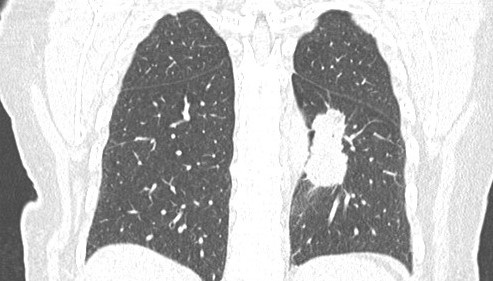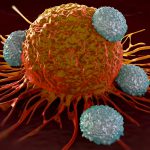The number of people dying from lung cancer and melanoma has dropped by more than 50% over the past five years, according to the latest statistics released by the American Cancer Society (ACS). The ACS Cancer Statistics 2020 report also showed the largest single-year drop in overall cancer mortality ever recorded, 2.2%, between 2016-2017.

Dr. Timothy Burns
UPMC Hillman Cancer Center lung cancer researcher and medical oncologist Dr. Timothy Burns said we will likely continue to see improvements in lung cancer death rates, thanks to research that has led to new treatment options and improved survival rates.
“We realize now that lung cancer is not a single disease but rather a collection of molecularly distinct cancers, and we can provide more targeted or personalized therapy for each patient,” said Burns. “If we target specific genes that drive the patient’s cancer, it will make a huge difference in how long patients are able to live and, in some cases, can increase their survival by many years.”
The easiest way to cure cancer is to detect it early. To that end, CT screening for lung cancer should become a regular part of adult screenings, as are colonoscopies and mammography, Burns noted.
The ACS report also showed rapid declines in melanoma cancers, again crediting research and breakthrough treatments approved in 2011 that significantly improved survival rates by up to 55%.

Dr. Diwakar Davar
Dr. Diwakar Davar, a melanoma researcher at UPMC Hillman, has had success with immunotherapy treatments. Davar and his colleagues perform in depth analyses of the tumor before making recommendations regarding treatment. That information is then used to determine if the patient receives a combination of targeted and/or immune based therapies that would offer the best option for curing their cancer.
“We are now looking at tumors to determine if they are active and receptive to immune therapy, and if that’s the case, we know we can have success with this treatment for our patients,” said Davar. “In one clinical trial currently underway, we have seen up to a 70% reduction in melanoma tumors. That’s huge.”
This recent 2020 report includes statistics only through 2017 due to the time required to compile data. The ACS cautions that the 2020-2021 pandemic could reverse some of the significant improvements seen over the past decade because of the current decline in patient screenings.









